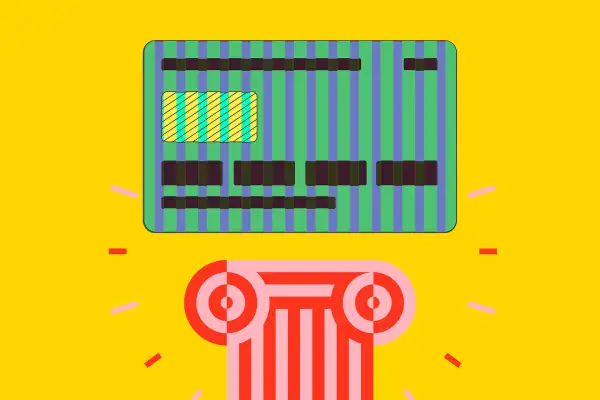Credit Card Points Are Helping With Everyday Expenses — and They’re at Risk to Disappear

Jessie Gougeon puts as much as she can, including her rent, on a credit card. But it’s not just for convenience or to build credit: The 25-year-old uses cash back rewards to help cover her utilities, Wi-Fi and gas bills.
She doesn’t get a ton of cash back each month — typically about $75. But Gougeon, who works as an assistant director of admissions at a small liberal arts college in Michigan, says every little bit counts, because she has student debt and is often living paycheck to paycheck.
“Any amount I can save is helpful,” Gougeon says.
Part of her incentive for getting a credit card in the first place was the rewards system, she says. She redeems the points she earns from the Chase Freedom Unlimited card for cash.
While there are scores of online communities, influencers and financial experts dedicated to helping people maximize their travel points, Gougeon isn't alone in saving her credit card rewards for essentials. Amid record-high inflation in 2022, nearly half of cardholders surveyed for a Wells Fargo report said they were leaning on their credit card rewards to offset some of the costs of everyday purchases. A 2023 Chase survey found cash back rewards helped Americans pay their credit card bills, get groceries and buy gasoline.
How Americans use credit card rewards — and how they could be at risk
It’s clear that in recent years, relying on credit card rewards has become the norm for many. The Consumer Financial Protection Bureau, or CFPB, reported that people with mass-market general-purpose cards earned an estimated $41.1 billion in rewards in 2022 — a 58% increase from 2019 levels. The average rewards earned per dollar grew, too, surging from 1.4% to 1.6% in that same period, according to the CFPB.
But retail trade groups have argued merchants are being forced to foot the bill for these rewards because they’re required to pay a fee on every purchase for which a customer uses a credit card. Now, a bill in Washington could significantly alter that process — and bring a major change to credit cards rewards as a result.
Lawmakers and lobbyists are currently battling over the Credit Card Competition Act, or CCCA, which was reintroduced in Congress last year after failing to pass in 2022.
The ins and outs of the legislation have to do with what happens behind the scenes when you swipe your credit card. When you use your card, your card issuer charges the business you’re making a purchase from an interchange fee. That fee is set by the network that processes the transaction, like Visa or Mastercard, and the burden of paying it is often passed to consumers. The CCCA would force businesses to offer at least one other, smaller network in addition to Visa and Mastercard. (American Express and Discover are exempt from the bill.)
The notion is that because merchants could choose their network, there’d be competition in the space, and Visa and Mastercard would have to lower their prices to keep up. Merchants would pay less, and, ideally, those savings would trickle down to customers.
However, a 2023 report from the nonpartisan Congressional Research Service says "it is not clear whether retailers would pass interchange savings on to consumers." Indeed, a separate analysis from the Richmond Federal Reserve found that only 1.2% of retailers lowered prices when similar legislation — the Durbin Amendment of the Dodd-Frank Act — was passed for debit cards. Nearly 99% either raised prices or kept them the same.
Opponents of the CCCA have raised a number of concerns, including the potential for cybersecurity issues that could come with adding networks that don’t have the infrastructure major credit card issuers do. But perhaps the buzziest possible impact of this legislation involves card rewards.
Rewards are primarily funded by interchange fees, says Nicklaus Simpson, managing director of public affairs and communications at the Electronic Payments Coalition, a trade association that represents banks of all sizes, credit unions and payment networks. Opponents of the bill say that merchants will, of course, choose the networks with the cheapest interchange fees, which could take away the funding source of rewards programs. The coalition’s website says the fallout of the CCCA would essentially get rid of credit card rewards as we know them.
Not everyone agrees. John Ulzheimer, who formerly worked for FICO and Equifax, said “credit card rewards are sacrosanct” and said it's possible companies could increase fees to make up for the loss of funding.
So far, the CCCA has not gained much traction beyond its introduction last June. The Senate Judiciary Committee is planning to hold a hearing on the legislation in early April. It has been referred to the Senate Committee on Banking, Housing and Urban Affairs, where it’s still awaiting a vote.
But whether you use credit card rewards to book stays at hotels, buy flights or pay for everyday essentials like Gougeon, it’s crucial to recognize those perks could soon change. To learn more about the legislation or take action with your member of Congress, visit HandsOffMyRewards.com.

